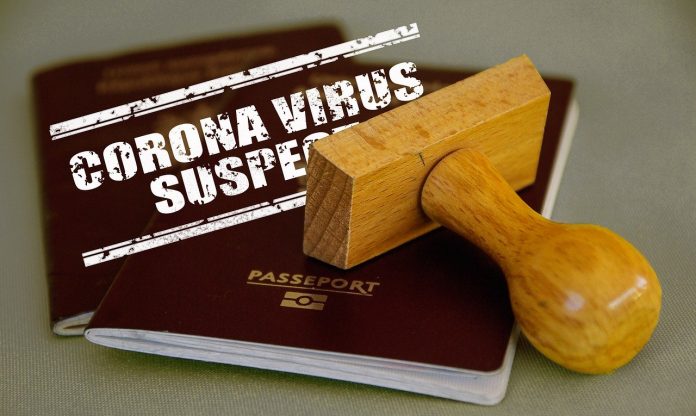The collapse of the Soviet Union led Francis Fukuyama to proclaim the end of history and the dawn of an era heralded by the liberal international order. However, contrary to Fukuyama’s proclamation, the world which emerged was a multilateral one with multiple poles of power claiming greater say in the international system. One of these poles, which has increasingly become among the most important poles in the international system is China. Coincidentally, it is also the epicentre of the COVID-19 or the Wuhan Virus which now is causing the international order to undergo a painful and protracted change. This time, compared to the earlier epochs in international relations’ history, the change has engulfed citizens across the globe as the world remains quarantined and maintaining social distance in hopes of a victory over the Wuhan Virus. Supply chains have been disrupted, production of most goods have come to a halt and most services including that of education have been forced to shift online. People’s movement has been restricted if not curtailed all together and the possibilities of mental health getting severely affected in such a scenario are high. People’s lives, over and above international politics is undergoing drastic changes.
As businesses and services are forced to move online, questions of data security loom large. Zoom, an online platform which is being used increasingly across the world for conducting meetings, discussions and even classes; has seen its daily user base grow from 10 million in December 2018 to more than 200 million in March this year. However, the question remains on whether data is being used for any sort of surveillance or collection without the consent of the users. Zoom as a platform describes its services as being secured by end-to-end encryption. However, it has been found that it actually has access to unencrypted video and audio files from the meetings conducted on the platform. In addition to this, Citizen Lab, a research group based at the University of Toronto found that encryption keys were transmitted to servers in China! In addition to this, it was also noted by the same research that Zoom employs about 700 staffers operating in China to develop software. In any case Zoom has admitted that it mistakenly routed calls through China! Now, as strong an economic and military power that China is, it is not known for democracy. On the contrary it is known for surveillance, concentration camps, organ harvesting of prisoners and curtailment of basic freedoms of people among a long list of authoritarian policies.
Taiwan has banned the usage of Zoom completely over fears of its security being tampered by China. The New York City Department of Education has a similar ban on the usage of Zoom citing security concerns, along with Space X and NASA. Singapore has also banned school teachers from using Zoom, while Google has told its employees that it cannot use Zoom on their laptops anymore citing security vulnerabilities. Australia has also enacted a ban on parliamentarians and senators using the service, after a similar move by the Australian Defence force. However, countries like UK and India continue using Zoom’s services along with a long list of democracies in the world.
While the world sits in quarantine in the hopes of the discovery of a vaccine or a cure for the Wuhan Virus, it is not difficult to imagine what a post-Wuhan Virus world would look like. If not anything else, it will be a world driven by increased suspicion not just between states of the international system but among people as well! The freedom of movement will be greatly reduced as visa regulations will become more stringent. Even domestic travel is bound to be impacted. The right to freedom of movement is a democratic right, but this will have to be tweaked in the favour of something more authoritarian which needs the state to intervene and assess if citizens are fit to travel or not. Beyond this, a greater online presence of individuals, business, companies, schools and colleges in any case can be put under surveillance, and the democratic right to freedom of speech may also come under strain.
The e-commerce boom which was taking place across the globe will also have to undergo drastic changes. A leaf could be taken out of China’s current methods on e-commerce platforms’ deliveries, given the fact that China is now slowly lifting the lockdowns and slowly returning to normalcy given the fact that the pandemic is slowly dying out in China. Local delivery services’ mobile applications now show the delivery person’s body temperature on the application’s delivery details screen. While this definitely is an efficient way to ensure contact with a person who might display symptoms of the virus, what this also means is greater sharing of personal details with mobile applications and with the state, and a drastic curtailment in private space of individuals- another blow to democratic freedoms!
Prior to the outbreak of the Wuhan Virus, largely beginning in the 2000s, there was a strong point of view as to how communism in China will eventually die out and the country will move to becoming a democracy. However, the outbreak of the Wuhan Virus has not just proved it wrong, but may as well be ushering in the opposite, causing democracies to move to systems that hinge on authoritarianism. To ensure that the Wuhan Virus does not mean the end of democracy, in a post-Wuhan Virus world order, democracies have to rethink freedoms along with the increased importance of ensuring public health and safety.
The views and opinions expressed in this article are those of the author.

The author is an Assistant Professor and Assistant Academic Dean at the Jindal School of International Affairs, O.P. Jindal Global University, Sonipat, Haryana, India. She can be reached at [email protected].


